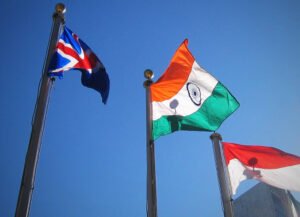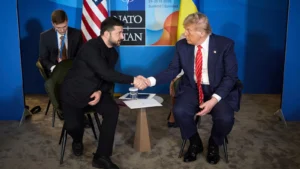🇮🇳🇬🇧 UK and India Sign Historic £6 Billion Trade Deal: What It Means for Businesses and Consumers
Indian Prime Minister Narendra Modi and UK Prime Minister Sir Keir Starmer have signed a landmark £6 billion free trade agreement, delivering major benefits to exporters, job markets, and bilateral relations after three years of intense negotiations.
Key Wins for Businesses on Both Sides
Under the new deal:
-
UK cars, whisky, and aerospace parts will be cheaper to export to India.
-
Indian textiles, jewellery, seafood, and electronics will have reduced tariffs when entering the UK.
-
Tariffs on UK whisky will drop from 150% to 75%, then to 40% by 2035, giving British distillers a competitive edge.
This is expected to boost the UK economy by £4.8 billion annually and create more than 2,200 jobs across Britain, with Indian firms also expanding operations within the UK.
A Post-Brexit Milestone
Prime Minister Starmer called it the “biggest and most economically significant trade deal” the UK has made since leaving the EU. Speaking at Chequers, he emphasized that this deal shows “Britain is open for business.”
The agreement signals a post-Brexit shift toward stronger bilateral trade partnerships, with both nations pledging deeper cooperation across technology, defence, education, and climate innovation.
Migration, Security, and Workforce Collaboration
The deal includes a mutual commitment to:
-
Combat illegal migration and organized crime through improved intelligence sharing.
-
Finalize a criminal records-sharing agreement for enhanced border control and legal cooperation.
-
Expand social security exemptions, allowing temporary staff from UK and Indian companies to avoid double national insurance contributions.
Critics have warned the extended social security terms could undercut British workers. However, UK Business Secretary Jonathan Reynolds strongly rejected these claims, stressing there is no tax advantage to hiring Indian workers and that similar deals already exist with 17 other countries, including the US and EU.
What’s in the Deal: Tariff Reductions and Market Access
UK Exports to India with Reduced Tariffs:
-
Luxury cars, aerospace equipment, medical devices
-
Whisky, gin, cosmetics
-
Food products: lamb, salmon, chocolates, biscuits
Indian Exports to the UK:
-
Textiles, footwear, jewellery, seafood
-
Electric and hybrid vehicles
Tariffs on UK exports to India will drop from an average of 15% to just 3%, unlocking major export potential.
Still Awaiting UK Parliament Approval
While India’s cabinet has signed off, the deal still requires ratification from the UK Parliament and is expected to take up to a year before coming into full effect.
Political Reactions
-
Conservatives hailed the deal as a success made possible by Brexit.
-
Liberal Democrats argued the benefits are modest compared to potential gains from stronger EU ties.
-
Critics also raised concerns about human rights, referencing the case of Scottish Sikh activist Jagtar Singh Johal, detained in India since 2017 without conviction. PM Starmer reportedly raised the issue during discussions.
Final Takeaway
This new UK-India trade agreement marks a turning point for international trade post-Brexit, promising mutual economic benefits, stronger diplomatic ties, and new business opportunities. While implementation and political scrutiny continue, the roadmap for collaboration between two of the world’s largest democracies is now firmly set.







